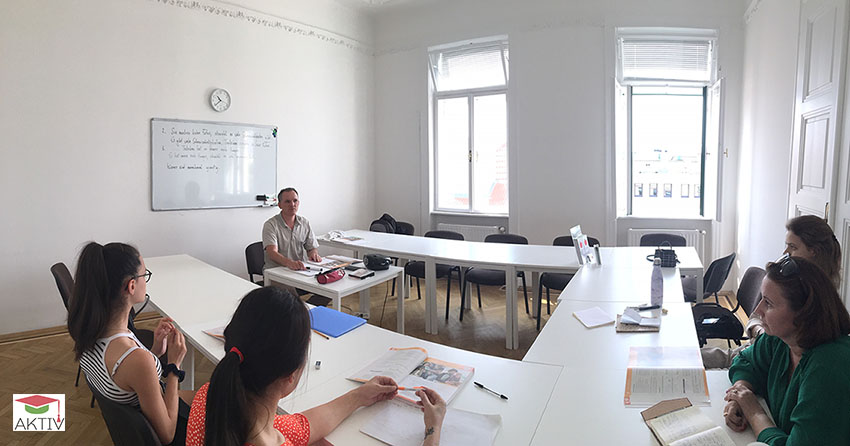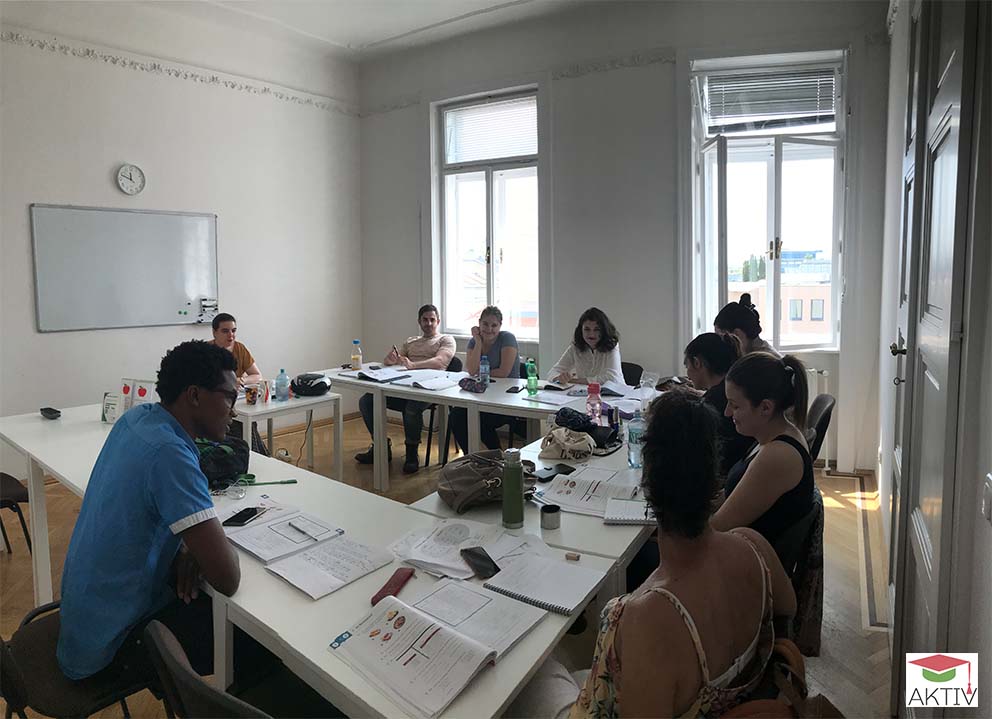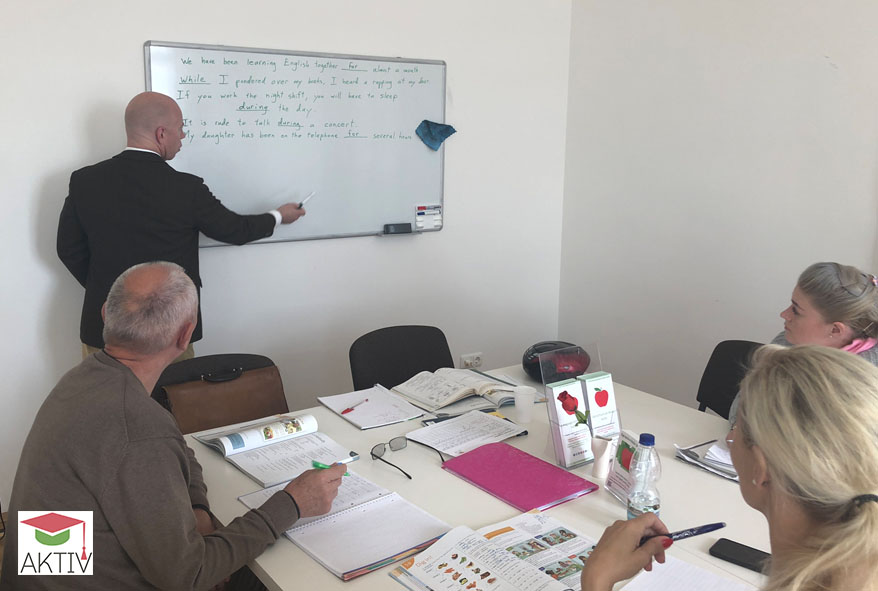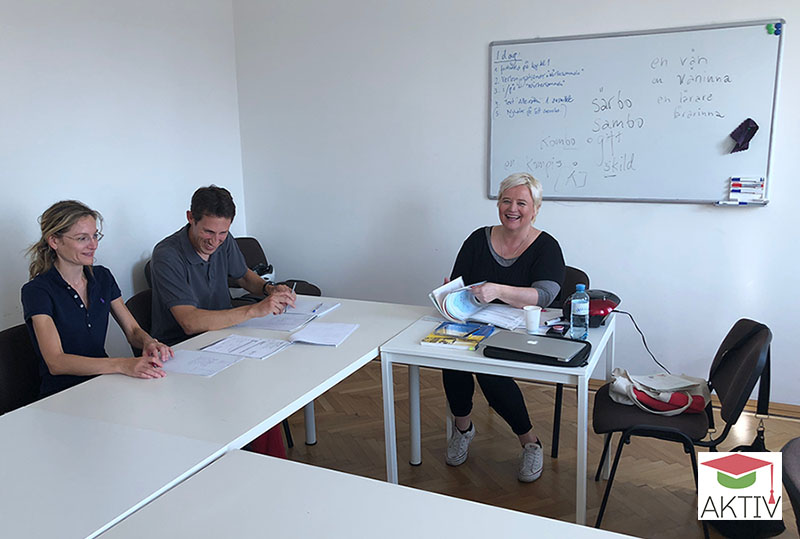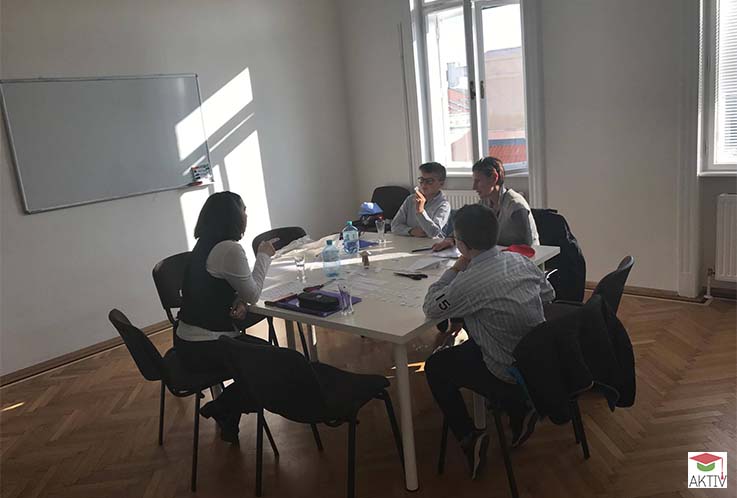Blog about Austria. Learn German and foreign languages - German language courses
Our blogs about the German language discuss several topics that you might find helpful throughout your German language-learning journey.
Language courses
You can have a look at our Blogs that are either about Austria or about learning German and a foreign languages.
Explore Our Blogs below
“What’s mine is yours” – The possessive pronoun in German
“What’s mine is yours” – The possessive pronoun in German Show a property by Possessivpronomen Pronouns are small words that describe a noun in more detail. “Possessive pronouns” describe possession more precisely, they are also called possessive pronouns. Possessive pronouns are declinable. This means that they change depending on the context in which they are […]
Can Netflix and TV help when learning a foreign language? Read our tips!
Using TV and Netflix to learn languages There is a clear answer to the question: ‘can one learn a language using TV’? And the answer is yes! Watching a foreign film or TV series is brilliant because you get exposed to new cultural situations and get a more ‘authentic’ vocabulary than just that which you […]
The German Relative pronouns
The German Relative pronouns – learn German Grammar If you want to learn German grammar, you have to learn the pronouns. Pronouns are little words that we use to avoid repeating a verb. You probably already know the pronouns for people: ich, du, er, sie, es, etc. But there is another special group of pronouns: relative […]
The personal pronoun in German
The personal pronoun – learn German Grammar Pronouns are words which closely describe and refer to a noun. Personal pronouns put emphasis on a noun which has already been named in a context and replace it. They’re important words and have to be declined in German grammar. What are pronouns and personal pronouns? In a […]
Comparison of German adjectives
Comparison of adjectives – German Grammar rules German has surprises in store. Such as when we want to increase adjectives. How do we do that when we compare two things? Your German grammar journey starts here… There are three levels of enhancement: the positive form, the comparative form and the superlative form. When do we use […]
Subjunctive II (Konjunktiv II) in German
German Subjunctive II (Konjunktiv II) – how to form it, and practice Subjunctive II is a specific case in German grammar which is often used, and with different meanings. But don’t panic! We’ll look at it in a moment. In the following post you’ll find how to form the Subjunctive II in the present and the […]
Partizip I and II – Rules and Usage in the German Language
Partizip I and II – Rules and Usage in the German Language In the German language, there is a difference between participle I and participle II. While the participle I expresses actions that are still taking place or are in progress, the participle II expresses actions that have already been or have been completed. A […]
Which prepositions take the accusative case in German?
Prepositions which need the Accusative Explaining the correct case to use with a preposition is one of the most difficult lessons in a German course. German grammar uses one of the four cases in connection with a certain preposition to form sentences. To help you navigate this ‘Preposition Jungle’ with slightly more ease, you will […]
Which prepositions follow the Genitiv form?
Prepositions that follow the Genitiv form The genitiv usually describes ownership. For example: Der Mantel des Mannes ist schick. (Whose coat is chic?) Genitiv is also followed by certain prepositions. These are for example: während, aufgrund, trotz, innerhalb oder anstatt. They can be divided into the following categories: Indication of Place – prepositions with genitiv […]
Prepositions with Dativ – The Dativ in German grammar
Prepositions with Dativ – Using the Dativ in German The German grammar uses the dativ or the third case to denote the receiver of the action. The typical question about is therefore “to whom?” Thus, for example, in the sentence “Der Mann gab dem Mädchen eine Rose” the question is “Wem gab der Mann eine […]
German Grammar – everything about the German Konjunktiv 1
All about the German Konjunktiv 1 The German language is not a difficult language! With us you will learn the German grammar and in no time because learning German can be easy! In this article, you’ll quickly understand what a Konjunktiv 1 is and how to use it properly. What is the Konjunktiv? The Konjunktiv […]
The German Prefix “Ent” and Its Different Usages
The German Prefix "Ent" and Its Different Usages This prefix with three small letters "ent" can completely change the meaning of a verb. However, it has different meanings and usages. Usage to undo something You put the prefix "ent" before a verb to express that you want to bring something back to its original state. [...]




